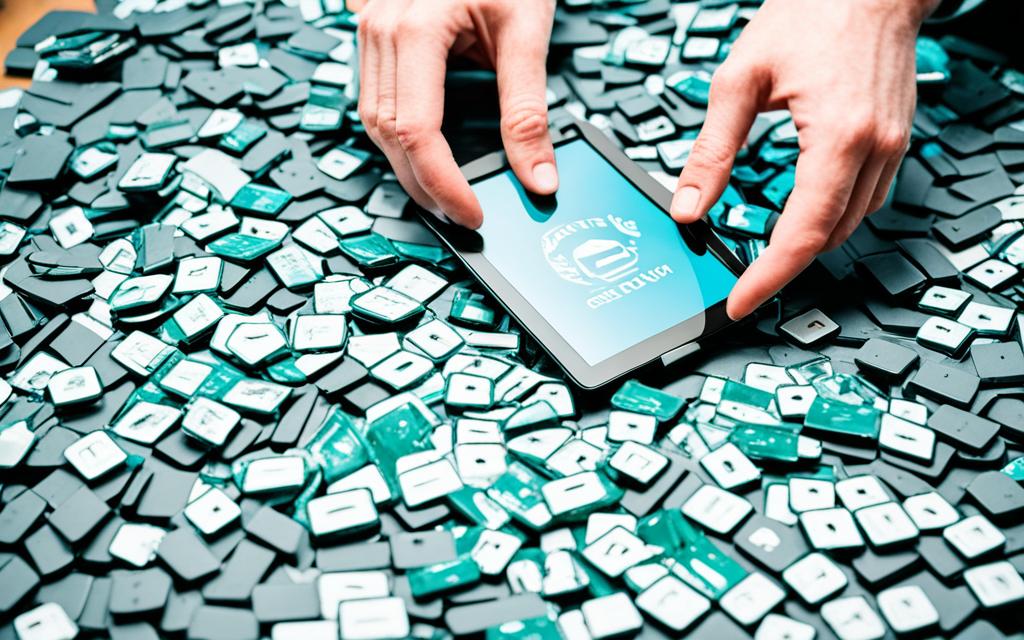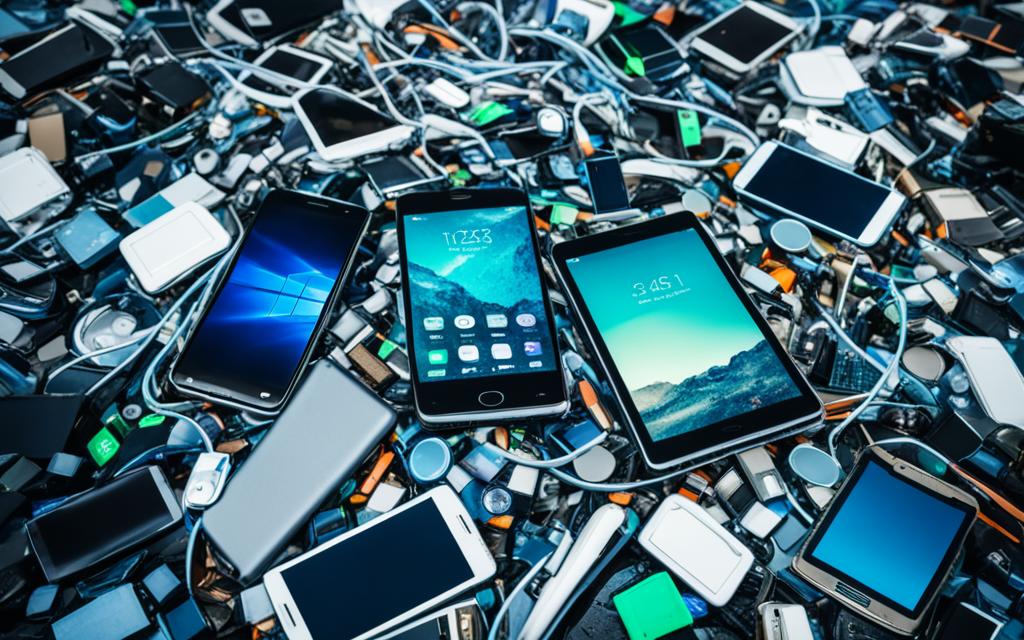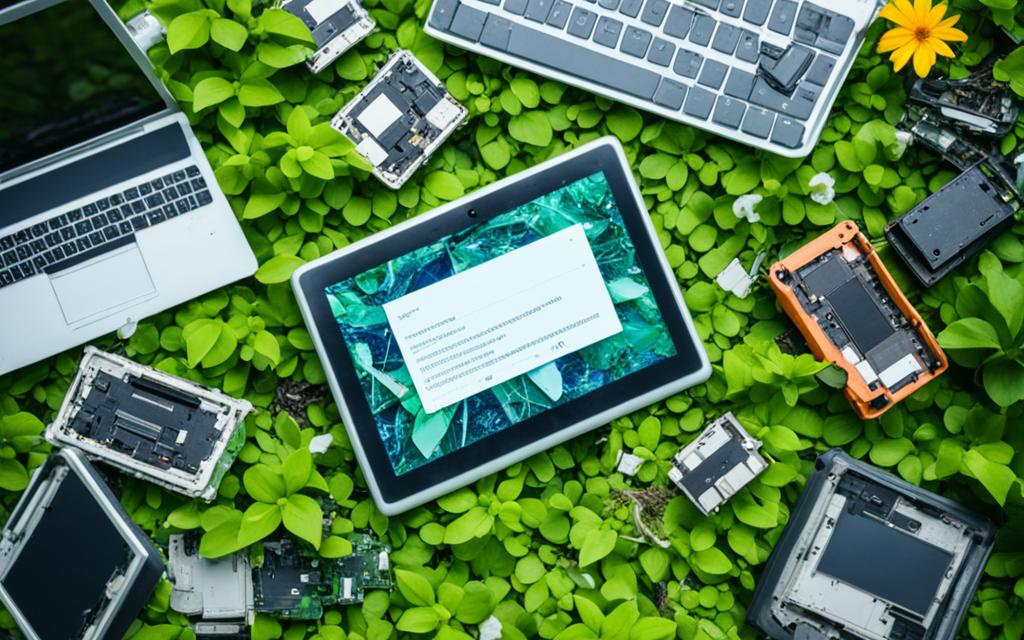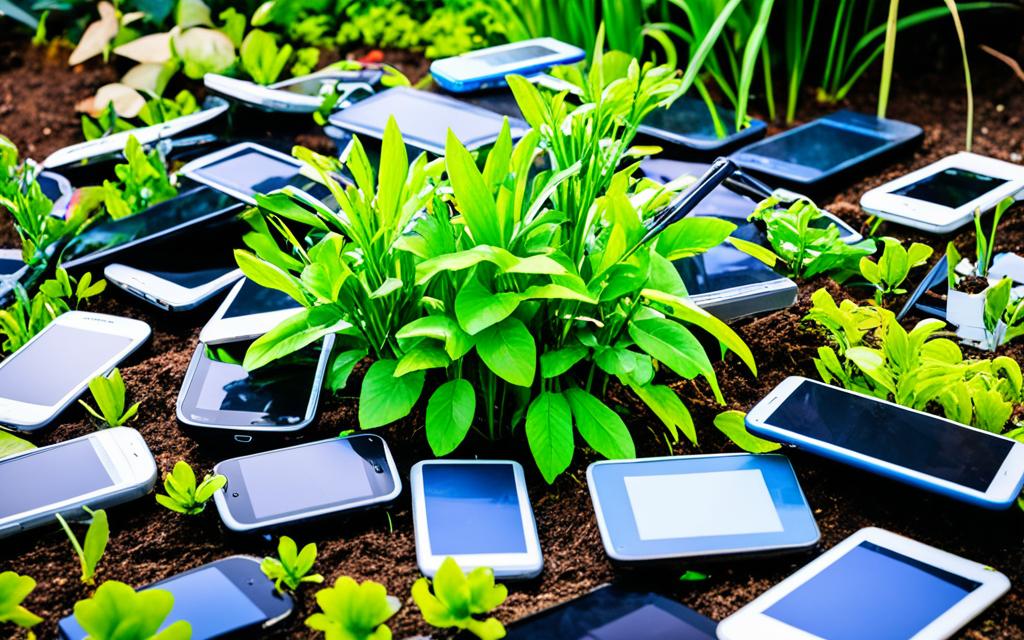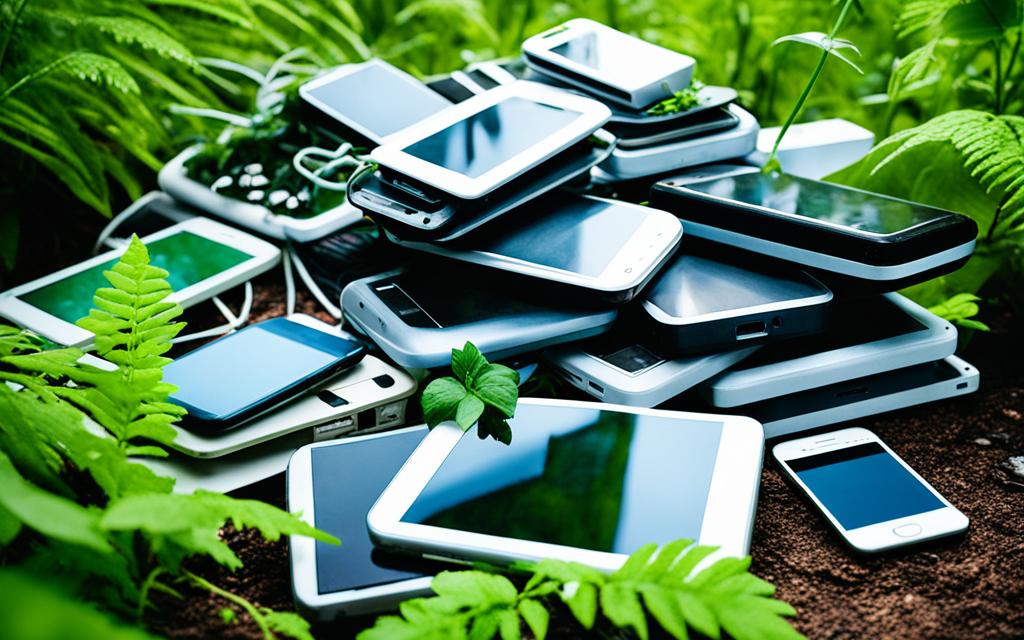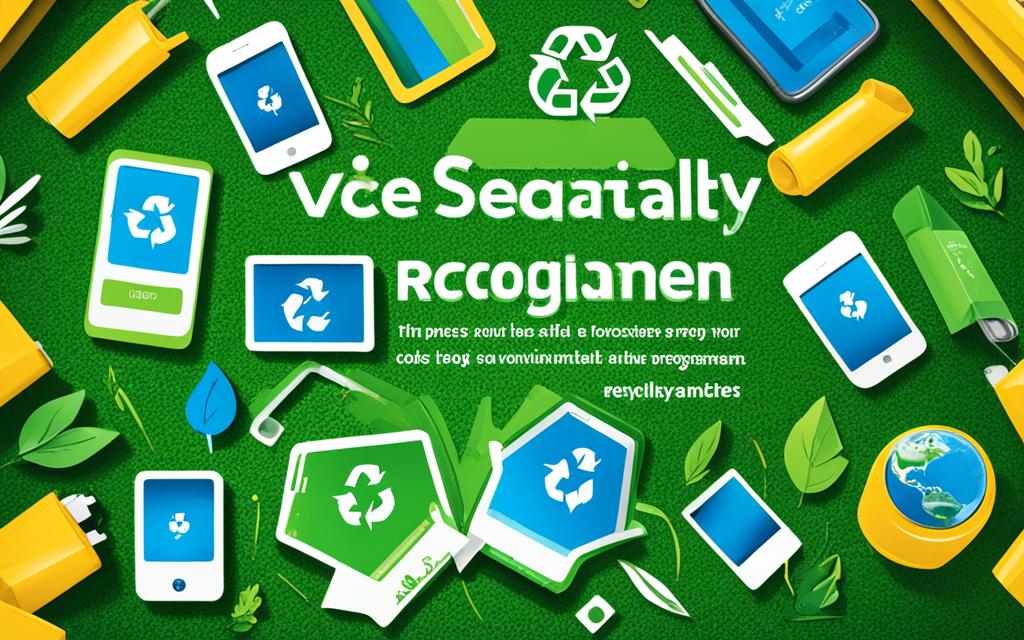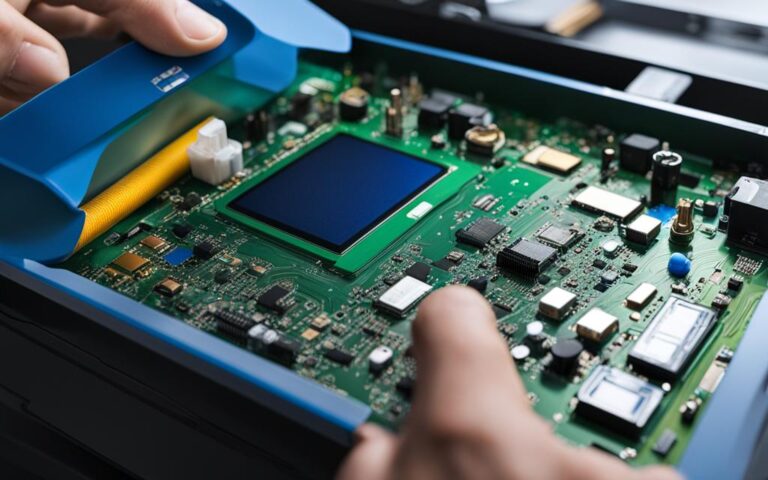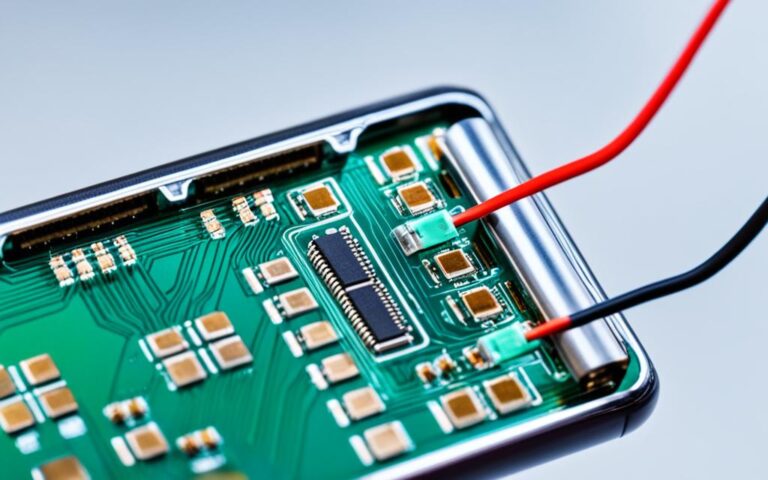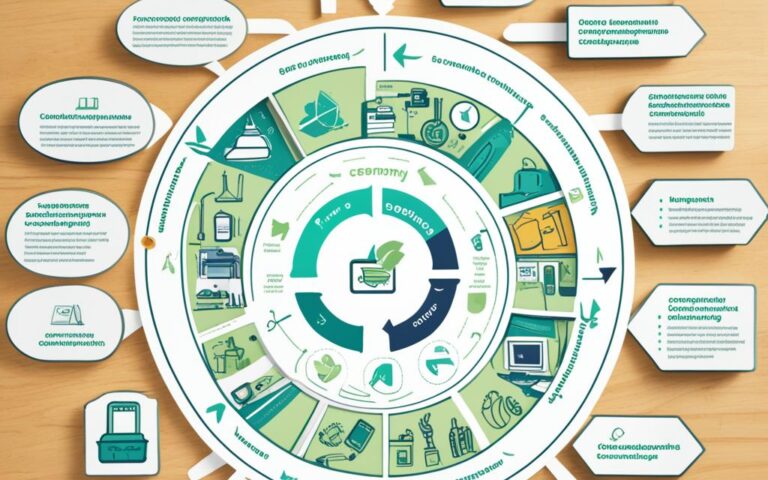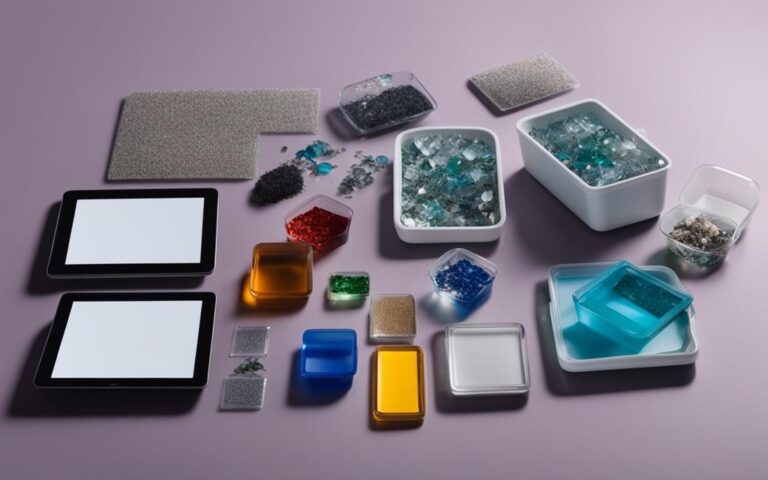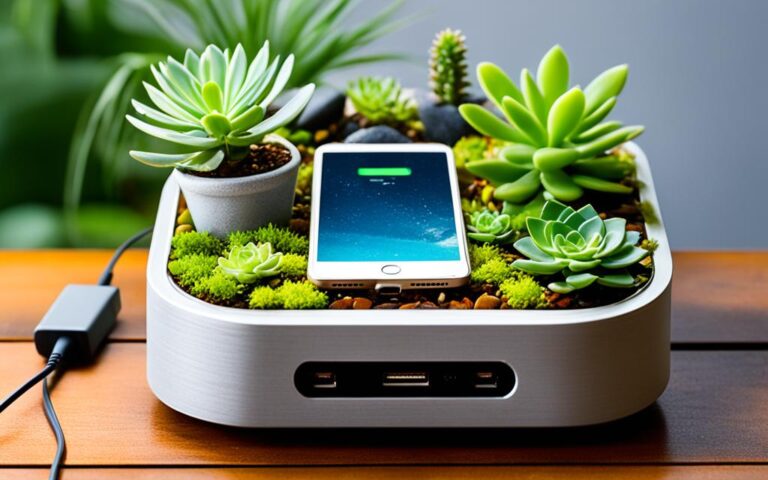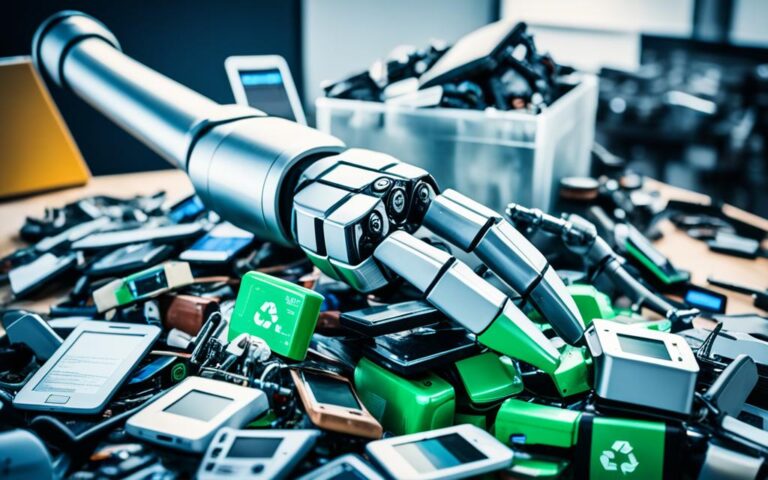Tablet Recycling Programs: How They Work
Did you know that every year millions of tablets are discarded worldwide, contributing to the growing environmental problem of electronic waste (e-waste)?
In this article, we will explore the importance of tablet recycling and how tablet recycling programs are making a difference in reducing e-waste and protecting our planet.
Tablet recycling programs aim to responsibly dispose of and recycle tablets to minimize their impact on the environment. These programs play a vital role in promoting sustainability by ensuring that valuable resources are recovered and hazardous materials are safely managed.
Tablet manufacturers are required to provide recycling programs by law in some regions. For instance, in Pennsylvania, the Covered Device Recycling Act (CDRA) stipulates that manufacturers must offer recycling programs for electronic devices sold to consumers. However, not all manufacturers comply with these regulations, leading to sales restrictions on their products.
When tablets reach the end of their life cycle, it is crucial to recycle them properly instead of throwing them in the trash. By doing so, we can prevent harmful substances such as lead, cadmium, mercury, and arsenic from polluting the environment. Recycling tablets also allows for the recovery of valuable materials like gold, silver, and copper, reducing the need for new mining activities.
There are various recycling options available for tablets. Companies like Dell Reconnect, Apple GiveBack, and Best Buy provide convenient drop-off locations where you can safely dispose of your old tablets. Some programs even offer incentives such as gift cards or store credit in exchange for your recycled device.
To ensure the responsible disposal of personal data, it is essential to erase all information from your tablet before recycling it. Simply deleting files is not enough, as data can still be recovered. Following guidelines to securely erase personal data will protect your privacy and prevent potential misuse.
By participating in tablet recycling programs and choosing environmentally friendly electronics, we can all contribute to a cleaner and more sustainable future. Let’s take a step towards protecting the environment and preserving our planet for future generations.
The Importance of Tablet Recycling
Consumer electronic devices like tablets have become an integral part of our daily lives. However, the rapid advancement of technology often renders these devices obsolete within a few years. This leads to a significant amount of electronic waste (e-waste) being generated.
E-waste can have a negative impact on the environment if not properly disposed of. It contains harmful materials such as lead, cadmium, mercury, and arsenic. To prevent these materials from contaminating the air, water, and land, it is crucial to recycle tablets and other electronic devices responsibly.
“By recycling tablets, we are not only reducing the amount of e-waste that goes into landfills, but also ensuring that valuable materials can be recovered and reused, conserving natural resources. It’s a small step that can make a big difference in protecting our environment for future generations.” – Emma Green, Environmental Activist
Impact on the Environment
The improper disposal of electronic devices contributes to the growing issue of e-waste. According to the United Nations Global E-waste Monitor 2020, approximately 53.6 million metric tons of e-waste was generated worldwide in 2019, with only 17.4% being properly documented and recycled.
E-waste contains toxic substances that can seep into the soil and water, contaminating ecosystems and posing risks to human health. Recycling tablets and other electronic devices helps prevent these hazardous materials from ending up in landfills, where they can leach into the environment and harm plants, animals, and even humans.
Resource Conservation
Tablet recycling plays a vital role in conserving valuable resources. Electronics contain precious metals like gold, silver, and copper, as well as rare earth elements, all of which can be recovered through recycling.
By recycling tablets, these valuable materials can be extracted and reused in the production of new electronic devices, reducing the need for raw material extraction. This helps conserve natural resources and reduces the environmental impact associated with mining and manufacturing processes.
Creating a Sustainable Future
Responsible tablet recycling is not only beneficial for the environment and resource conservation but also contributes to the development of a more sustainable future. Recycling programs and initiatives encourage individuals and businesses to take an active role in reducing e-waste and promoting circular economy practices.
Through recycling, we can extend the lifespan of electronic devices, reduce the demand for new products, and minimize the carbon footprint associated with their production and disposal. It is a collective effort that requires the participation of manufacturers, retailers, consumers, and recycling facilities to create a more sustainable and eco-friendly electronics industry.
As we continue to embrace technology in our lives, it is crucial that we also prioritize responsible disposal and recycling. By recycling tablets, we can contribute to a cleaner environment, conserve valuable resources, and pave the way for a sustainable future.
The Covered Device Recycling Act
The Covered Device Recycling Act (CDRA) is a legislation introduced to ensure the proper disposal and recycling of electronic waste in Pennsylvania. This act mandates manufacturers to provide recycling programs for specific electronic devices sold to consumers in the state. The aim is to minimize the environmental impact caused by the improper disposal of these devices.
The electronic devices covered under CDRA include televisions, desktop and laptop computers, and computer monitors and peripherals. By implementing recycling programs for these devices, the CDRA encourages responsible recycling practices and helps prevent them from ending up in landfills.
The CDRA outlines clear responsibilities for manufacturers, collection sites, and consumers in the recycling process. Manufacturers are required to establish comprehensive recycling programs that allow consumers to easily dispose of their old devices. Collection sites play a crucial role in accepting these devices and ensuring they are properly recycled. Consumers, on the other hand, are encouraged to participate in these recycling programs and ensure their old devices are not discarded as regular waste.
By enforcing the Covered Device Recycling Act, Pennsylvania aims to create a more sustainable future and reduce the environmental impact of electronic waste. Recycling programs provided under the CDRA offer individuals a convenient avenue to dispose of their electronic devices responsibly.
For a better understanding of the responsibilities outlined in the Covered Device Recycling Act, refer to the table below:
| Role | Responsibilities |
|---|---|
| Manufacturers | Establish recycling programs for covered devices |
| Collection Sites | Accept covered devices for recycling |
| Consumers | Participate in recycling programs and responsibly dispose of covered devices |
Remember, recycling your electronic devices in accordance with the Covered Device Recycling Act helps protect the environment and contributes to a more sustainable future.
In the next section, we will explore the various recycling options available for tablets, highlighting different programs and initiatives.
Recycling Options for Tablets
When it comes to recycling your old tablets, there are several eco-friendly options available. By choosing the right recycling program, you can ensure that your device is disposed of responsibly and its components are recycled or reused.
Dell Reconnect
Dell Reconnect, in partnership with Goodwill, offers a convenient way to recycle your tablets and other computer devices. They accept any brand of computer and connected devices for recycling. By donating your old tablet to Dell Reconnect, you not only contribute to environmental sustainability but also support job training programs for individuals in need.
World Computer Exchange
World Computer Exchange is a non-profit organization that promotes the reuse and recycling of electronic devices. They collect used electronics, including tablets, and refurbish them for reuse. These devices are then provided to communities in developing countries, bridging the digital divide and empowering individuals with access to technology.
eBay for Charity
If you prefer to sell your used tablet and contribute the proceeds to a charitable cause, consider eBay for Charity. This platform allows you to list your device for sale, and the money generated can be donated to a charity of your choice. It’s a win-win situation where you not only recycle your tablet but also support a cause you care about.
Amazon
Amazon offers a hassle-free trade-in program for electronic devices. You can trade in your old tablet for an Amazon gift card, which can be used towards purchasing a new device or any other item available on the platform. This program encourages responsible recycling while providing you with a convenient way to upgrade to a new tablet.
Apple GiveBack
Apple’s GiveBack program allows you to trade in your tablet for an Apple Store gift card or in-store credit. They accept a wide range of eligible devices and ensure that they are either refurbished for resale or recycled responsibly. By participating in this program, you not only contribute to environmental conservation but also have the opportunity to upgrade to the latest Apple devices.
Best Buy
Best Buy is committed to sustainability and offers recycling options for various electronics, including tablets. They accept devices for recycling regardless of where they were originally purchased. Simply drop off your tablet at any Best Buy location, and they will ensure that it is disposed of responsibly.
Office Depot and Staples
Office Depot and Staples provide recycling options specifically for printer cartridges. Although they do not accept tablets directly, you can recycle your printer cartridges at their stores and receive store credit. This is a great way to recycle a commonly used electronic component and save money on your office supplies.
Sprint Buyback Program
Sprint’s Buyback Program offers account credits for recycling mobile phones, including tablets with cellular capabilities. By participating in this program, you can not only offset the cost of upgrading to a new device but also ensure that your old tablet is recycled responsibly.
These are just a few examples of the tablet recycling options available. Before disposing of your old tablet, consider these environmentally-friendly alternatives. By recycling your tablet through these programs, you can contribute to a more sustainable future while making a positive impact on the environment.
Responsible Disposal of Personal Data
Before recycling or disposing of a tablet, it is essential to properly erase all personal information. Simply deleting files is not sufficient. There are specific steps you can take to ensure that your personal data is removed from the device. By following the recommended guidelines, you can protect your privacy and prevent any potential misuse of your personal information.
Safe Data Disposal Process
- Backup: Before erasing all data, make sure to back up any important files or documents.
- Factory reset: Perform a factory reset to erase all data from the tablet. This will restore the device to its original settings.
- Secure wipe: Use a secure wipe tool or software to thoroughly delete all data from the tablet’s storage. This ensures that the information cannot be recovered.
- Remove SIM and memory cards: If your tablet has a SIM card or external memory card, remove them before recycling or disposing of the device. These items may contain personal data as well.
By following these steps, you can confidently dispose of your tablet, knowing that your personal data has been effectively erased.
“Properly erasing personal data from a tablet is essential in this digital age. It not only protects your privacy, but also helps prevent identity theft and unauthorized access to your sensitive information.” – Data Security Expert
Remember, taking the necessary precautions to dispose of personal data responsibly is crucial in today’s interconnected world. By ensuring that your tablet is thoroughly cleaned of all personal information, you can contribute to a safer and more secure digital environment.
Take control of your data and protect your privacy by following the proper steps to erase personal information from your tablet before recycling or disposing of it.
Environmental Considerations and Tips
When shopping for a new tablet or any electronic device, consider its environmental attributes. Look for products that incorporate recycled materials and have energy-efficient features. By choosing environmentally friendly electronics, you can make a positive impact on the planet.
One way to reduce energy consumption is by using surge protectors or power strips. These devices not only protect your electronic equipment during power outages but also help save energy. By plugging your devices into a surge protector, you can easily turn off multiple devices at once, preventing them from consuming power in standby mode.
Another eco-friendly option is to consider purchasing used or refurbished tablets. This not only helps to reduce electronic waste but also allows you to get a high-quality device at a more affordable price. Many reputable brands offer refurbished tablets that undergo rigorous testing and come with warranties, ensuring their quality and reliability.
Remember, small actions can make a big difference when it comes to protecting the environment. By making conscious choices, such as opting for environmentally friendly electronics and practicing energy-saving habits, we can all contribute to a greener future.
| Advantages of Environmentally Friendly Electronics | Benefits of Surge Protectors | Advantages of Purchasing Used or Refurbished Devices |
|---|---|---|
|
|
|
Conclusion
Tablet recycling programs play a crucial role in promoting environmental conservation and reducing e-waste. By responsibly recycling tablets and other electronic devices, we can prevent harmful materials from polluting our environment and contribute to a more sustainable future. It is important for individuals to be aware of the available recycling options and take the necessary steps to properly dispose of their unwanted tablets. Together, we can make a positive impact on the environment and help shape a more eco-conscious society.
FAQ
What is the Covered Device Recycling Act (CDRA)?
The Covered Device Recycling Act (CDRA) is a legislation that requires manufacturers to provide recycling programs for certain electronic devices sold to consumers in Pennsylvania. It aims to ensure the proper disposal and recycling of electronic waste, minimizing its impact on the environment.
What are the responsibilities outlined by the CDRA?
The CDRA outlines the responsibilities of manufacturers, collection sites, and consumers in the recycling process. Manufacturers are required to provide recycling programs for covered devices, collection sites must accept these devices, and consumers should responsibly dispose of their unwanted tablets.
Where can I recycle my tablet?
There are several options available for recycling tablets. Dell Reconnect, in partnership with Goodwill, accepts any brand of computer and connected devices for recycling. The World Computer Exchange promotes reuse and recycling by providing devices to communities in developing countries. eBay for Charity allows you to sell your used devices and donate the proceeds to a charity. Amazon offers gift cards for electronic devices and accepts trade-ins. Apple’s GiveBack program provides gift cards or in-store credit for qualifying products and accepts devices for recycling. Best Buy offers recycling options for a wide range of electronics. Office Depot and Staples offer store credit for printer cartridges. Sprint’s Buyback program offers account credits for mobile phones.
How can I erase personal information from my tablet before recycling it?
Simply deleting files is not sufficient to erase personal information from a tablet. It is essential to follow specific steps to ensure that your data is removed. By following the recommended guidelines, you can protect your privacy and prevent any potential misuse of your personal information.
What should I consider when shopping for a new tablet?
When shopping for a new tablet or any electronic device, consider its environmental attributes. Look for products that incorporate recycled materials and have energy-efficient features. Using surge protectors or power strips can help protect electronic equipment during power outages and reduce energy consumption. Purchasing used or refurbished devices can be a more affordable and environmentally friendly option compared to buying new devices.
Why is tablet recycling important?
Tablet recycling plays a crucial role in promoting environmental conservation and reducing electronic waste (e-waste). Properly disposing of tablets and other electronic devices prevents harmful materials such as lead, cadmium, mercury, and arsenic from polluting the environment. By responsibly recycling tablets, we can contribute to a more sustainable future.

